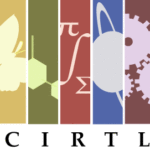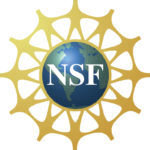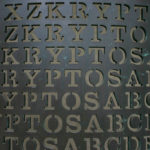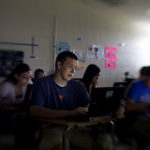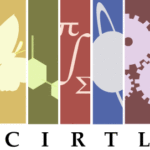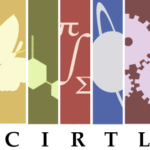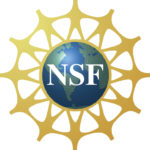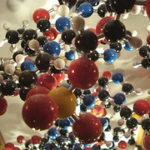‘STEM’
Teaching Science by Reacting to the Past
Apr. 19, 2011—by CFT Assistant Director Derek Bruff Last month CFT graduate teaching fellow Lily Claiborne and I attended the AAC&U / Project Kaleidoscope conference “Engaged STEM Learning: From Promising to Pervasive Practices.” (STEM = Science, Technology, Engineering, Mathematics.) Most participants were STEM faculty from a range of disciplines with some administrators and teaching center staff in...
CIRTL Network Online Courses on the College Classroom and Problem-Based Learning
Apr. 7, 2011—The Center for the Integration of Research, Teaching, and Learning (CIRTL) has announced their fall online courses on college teaching open to graduate students and post-docs in the sciences, engineering, and mathematics. These courses are interactive, synchronous, online learning experiences designed to prepare grad students and post-docs for future faculty roles. Course descriptions are included...
Call for Proposals – NSF Ethics Education in Science and Engineering – Due March 14, 2011
Dec. 29, 2010—The National Science Foundation is requesting proposals for the Ethics Education in Science and Engineering (EESE) Program. From the call for proposals: The Ethics Education in Science and Engineering (EESE) program aims to deepen the understanding of ethical dilemmas in science and engineering, and provide cutting edge, effective research and educational materials to train the...
Cryptography: Nby Bcmnils uhx Gunb iz Wixym uhx Wcjbylm
Nov. 8, 2010—CFT assistant director Derek Bruff is teaching a new first-year writing seminar this fall. The course is titled “Cryptography: The History and Mathematics of Codes and Code-Breaking.” Topics include: military cryptography, like the efforts of British cryptographers at Bletchley Park during World War II to figure out the German Enigma Machine codes; cryptography in popular...
Leveraging Student Laptops and Smart Phones – Highlights from the Conversation
Oct. 18, 2010—Last week, the CFT hosted a conversation on teaching titled “Wireless in the Classroom: Strategies for Leveraging Student Laptops and Smart Phones.” This session, a follow-up to our earlier session focusing on policies on laptops use in the classroom, offered instructors interested in taking advantage of classroom Wifi and student mobile devices some ideas for...
CIRTL Coffee Hour, October 21 – Teaching and Research at Different Institutions
Oct. 15, 2010—The 2010-2011 Coffee Hour Series provides an opportunity for STEM (science, technology, engineering, & math) graduate students and post docs to get together online and talk about careers and the academic job search. The series will be facilitated by a mix of young faculty who have recently secured positions and more seasoned tenured faculty. The...
CIRTL Coffee Hour, September 16 – The CIRTL Network Exchange
Sep. 13, 2010—Since Vanderbilt is a member of the Center for the Integration of Research, Teaching, and Learning (CIRTL) Network, Vanderbilt graduate students and post-docs in the sciences, engineering, and mathematics are eligible to apply to participate in the CIRTL Network Exchange. “Exchange students” are funded by CIRTL to visit other campuses in the CIRTL Network (Howard,...
Call for Proposals – NSF Research and Evaluation on Education in Science and Engineering (REESE) – Due November 15, 2010
Aug. 3, 2010—From the National Science Foundation, a call for proposals for the Research and Evaluation on Education in Science and Engineering (REESE) program: The Research and Evaluation on Education in Science and Engineering (REESE) program seeks to advance research at the frontiers of STEM learning, education, and evaluation, and to provide the foundational knowledge necessary to...
Teaching and Evaluating All at Once: Asking Students to Write Their Own Questions
Jul. 23, 2010—This is a guest post by Isabel Gauthier, professor of psychology specialized in cognition and cognitive neuroscience. Thanks to Isabel for sharing this insight into her teaching. We welcome contributions to the CFT blog by others in the Vanderbilt teaching community! It is difficult to write meaningful and discriminative multiple-choice questions that students find clear...
The NSF’s Broader Impact Criterion and Educational Initiatives
Jul. 23, 2010—Nature recently published an article titled “Science for the Masses” that considered some of the problems with the National Science Foundation’s requirement that NSF grant proposal address a “broader impact” criterion. NSF director Arden Bement is quoted as saying, “The criterion was established to get scientists out of their ivory towers and connect them to...

